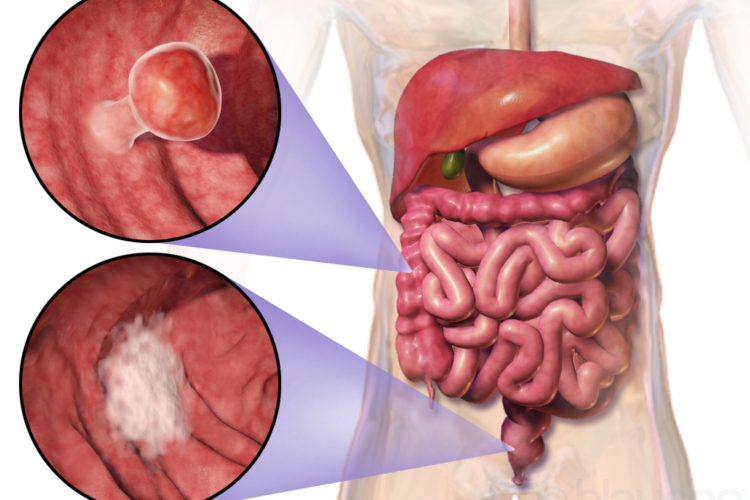Colon cancer is one of the most common cancers worldwide, yet it often develops without noticeable symptoms in its early stages. Many people assume that cancer always presents clear warning signs, but colon cancer can progress silently for years before any obvious issues arise. This makes early detection crucial, as identifying and treating the disease before symptoms appear greatly improves the chances of successful treatment.
How Colon Cancer Develops Without Symptoms
Colon cancer typically begins as small growths called polyps in the lining of the colon. These polyps may take years to develop into cancer, and during this time, they often cause no discomfort or visible signs. Unlike other conditions that may trigger immediate symptoms, colon cancer can remain undetected until it has reached an advanced stage, which is why regular screenings are essential.
Even when colon cancer symptoms do arise, they can be mistaken for less serious gastrointestinal issues such as hemorrhoids, irritable bowel syndrome (IBS), or dietary sensitivities. This delay in recognizing the disease can allow it to progress undetected, making treatment more difficult and reducing survival rates.
Risk Factors That Increase the Likelihood of Hidden Colon Cancer
Several factors can increase the risk of developing colon cancer without noticeable symptoms. Age is one of the biggest risk factors, as most cases occur in individuals over 50. However, lifestyle choices such as a diet high in processed foods and red meat, a sedentary lifestyle, obesity, smoking, and excessive alcohol consumption also contribute to the risk.
Family history plays a significant role as well. Individuals with a close relative who has had colon cancer are more likely to develop the disease themselves. Additionally, those with conditions like inflammatory bowel disease (IBD), including Crohn’s disease and ulcerative colitis, are at a higher risk.
The Importance of Regular Screening for Early Detection
Because colon cancer symptoms may not appear until the disease is advanced, regular colon cancer screenings are the most effective way to detect it early. Medical professionals recommend that individuals at average risk start screening at age 50, though those with a family history or other risk factors may need to start earlier.
Screening methods include colonoscopy, fecal occult blood tests (FOBT), fecal immunochemical tests (FIT), and stool DNA tests. Among these, colonoscopy is the most thorough method, as it allows doctors to examine the entire colon and remove any suspicious polyps before they become cancerous. Colon cancer symptoms may not always be present, but proactive screening can help detect abnormalities before they pose a serious health threat.
When Should You Worry About Symptoms?
While colon cancer can be symptomless in its early stages, certain warning signs should prompt immediate medical attention. These include persistent changes in bowel habits, unexplained weight loss, ongoing fatigue, rectal bleeding, or blood in the stool. Additionally, abdominal discomfort, bloating, or a feeling that the bowel has not emptied completely can indicate an issue.
Many of these symptoms can be caused by less serious conditions, but if they persist for several weeks, it is important to consult a doctor for further evaluation. Ignoring these warning signs can lead to a delayed diagnosis and a more challenging treatment process.
Taking Proactive Steps to Reduce Your Risk
Although colon cancer can develop without symptoms, there are steps you can take to lower your risk. A diet rich in fiber, fruits, and vegetables can help support digestive health, while limiting red and processed meats can reduce exposure to harmful compounds linked to cancer. Regular exercise, maintaining a healthy weight, avoiding smoking, and limiting alcohol intake can also contribute to a lower risk.
Most importantly, staying up to date with colon cancer screenings ensures that any precancerous polyps or early-stage cancers are detected before they become dangerous. If you have a family history of colon cancer, discuss with your doctor whether you should begin screening at an earlier age.
Conclusion
Colon cancer is a serious condition, but it often progresses silently, making early detection vital. While colon cancer symptoms may not always be present, regular screenings and awareness of risk factors can help catch the disease before it advances. By adopting a proactive approach through lifestyle changes and medical check-ups, you can significantly reduce your risk and improve your long-term health outlook.

